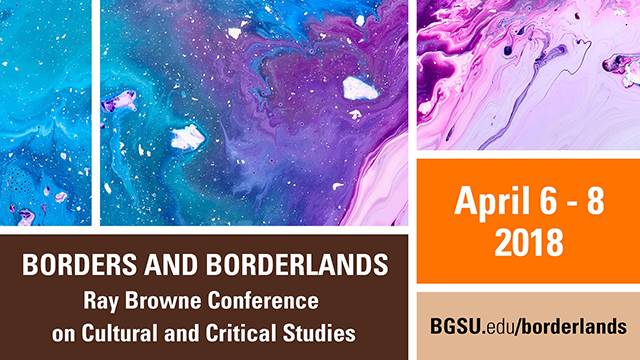
Concurrent Panel Session Eleven
Start Date
8-4-2018 2:00 PM
End Date
8-4-2018 2:50 PM
Abstract
The Latinx queer subjectivity complicates the racial and social discourses of the United States and Latin America, in both the academy and popular culture. The complex intersections of identity that marks the queer Latinx subject disrupts conventional narratives of race, ethnicity and culture, as well as gender and sexuality.
The Latinx identity breaks down the rigid construction of race as a biological “truth,” challenging the Black versus White racial binary that is the foundation of the United States racial mythology; the Latinx subject is constructed in the American racial imaginary as neither black nor white, but ¨brown.” This construction of “brownness” within the Latinx subjectivity is tasked with accounting for an array of identities: Afro-brown, White-brown, and Mestizo-brown. Likewise, the queer subject is also difficult to categorized based solely on normative binaries of gender and desire. Queers inhabit the borderlands of society and culture, disrupting constructions of gender, sexuality, and community.
This paper explores how we can approach an investigation of the slippery subjectivity of the queer Latinx. I argue for a delinking of simple notions of the racialized body and linear nationalistic narratives of progress and modernity. To approach the complex web of histories, nations, and identities that have been conflated into a single Latinx identity, we must first understand the lineages that led us to this present state of confusion and potentiality.
Included in
Chicana/o Studies Commons, Ethnic Studies Commons, Indigenous Studies Commons, Latina/o Studies Commons, Lesbian, Gay, Bisexual, and Transgender Studies Commons, Performance Studies Commons
Borderlands after Anzaldúa: Queer/Latinx Identity in Theory and Practice
The Latinx queer subjectivity complicates the racial and social discourses of the United States and Latin America, in both the academy and popular culture. The complex intersections of identity that marks the queer Latinx subject disrupts conventional narratives of race, ethnicity and culture, as well as gender and sexuality.
The Latinx identity breaks down the rigid construction of race as a biological “truth,” challenging the Black versus White racial binary that is the foundation of the United States racial mythology; the Latinx subject is constructed in the American racial imaginary as neither black nor white, but ¨brown.” This construction of “brownness” within the Latinx subjectivity is tasked with accounting for an array of identities: Afro-brown, White-brown, and Mestizo-brown. Likewise, the queer subject is also difficult to categorized based solely on normative binaries of gender and desire. Queers inhabit the borderlands of society and culture, disrupting constructions of gender, sexuality, and community.
This paper explores how we can approach an investigation of the slippery subjectivity of the queer Latinx. I argue for a delinking of simple notions of the racialized body and linear nationalistic narratives of progress and modernity. To approach the complex web of histories, nations, and identities that have been conflated into a single Latinx identity, we must first understand the lineages that led us to this present state of confusion and potentiality.

